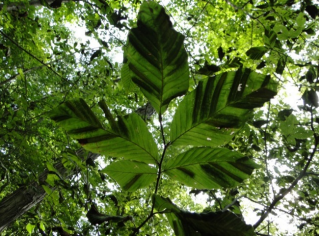Thanks to Congressman Joe Courtney, the recent $1.7 Trillion federal spending bill that passed in December 2022 includes a grant of $1.4 million for the Town of East Hampton to complete the 1800-foot gap in the Air Line Trail. The RiverCOG and the Jonah Center worked to support East Hampton in the funding request back in 2020-21. This gap in the trail could not be completed in the 2017-2019 period along with the sections on either end of the gap due to the creek running through the gorge, the presence of utility poles and a power line, and the high cost of construction because a boardwalk will be required.
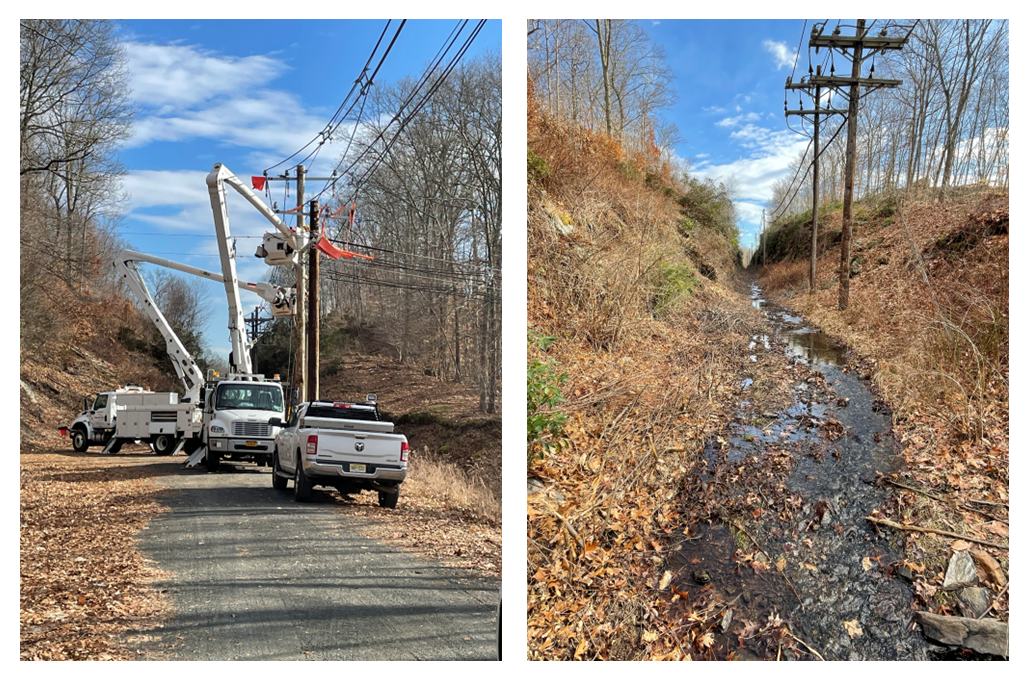
Prior to the grant award, Eversource and the Town of East Hampton agreed to share the cost of re-locating Eversource’s power lines to bypass the gorge, which in turn will allow the poles to be removed. The re-routing work should be completed by the end of January, according to the crew working on the site on January 18, 2023. Continue reading














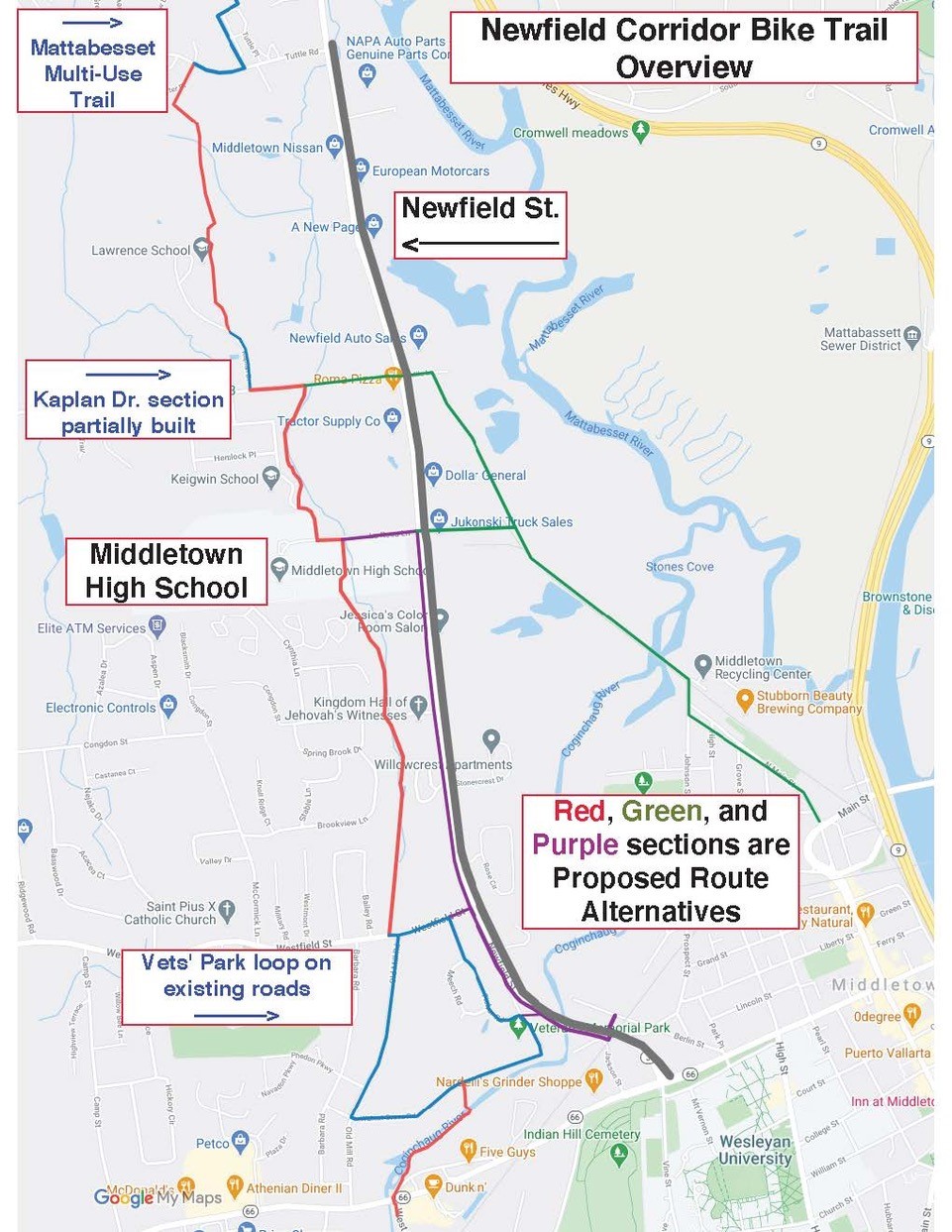 A study to determine the best route for the Newfield Corridor Trail is underway. Design and construction of the trail was funded by the 2015 Parks Bond, and assigned a budget of $4 million. This multi-use bikeway will be an extension of the Mattabesset Bike Trail southward from Tuttle Road to Veterans Park. (
A study to determine the best route for the Newfield Corridor Trail is underway. Design and construction of the trail was funded by the 2015 Parks Bond, and assigned a budget of $4 million. This multi-use bikeway will be an extension of the Mattabesset Bike Trail southward from Tuttle Road to Veterans Park. ( We are a city committee and we meet on the second Monday of each month at 7pm (via Webex). We would love for any citizen to attend a meeting and get to know our friendly, collaborative team. Every new person brings new insights.
We are a city committee and we meet on the second Monday of each month at 7pm (via Webex). We would love for any citizen to attend a meeting and get to know our friendly, collaborative team. Every new person brings new insights.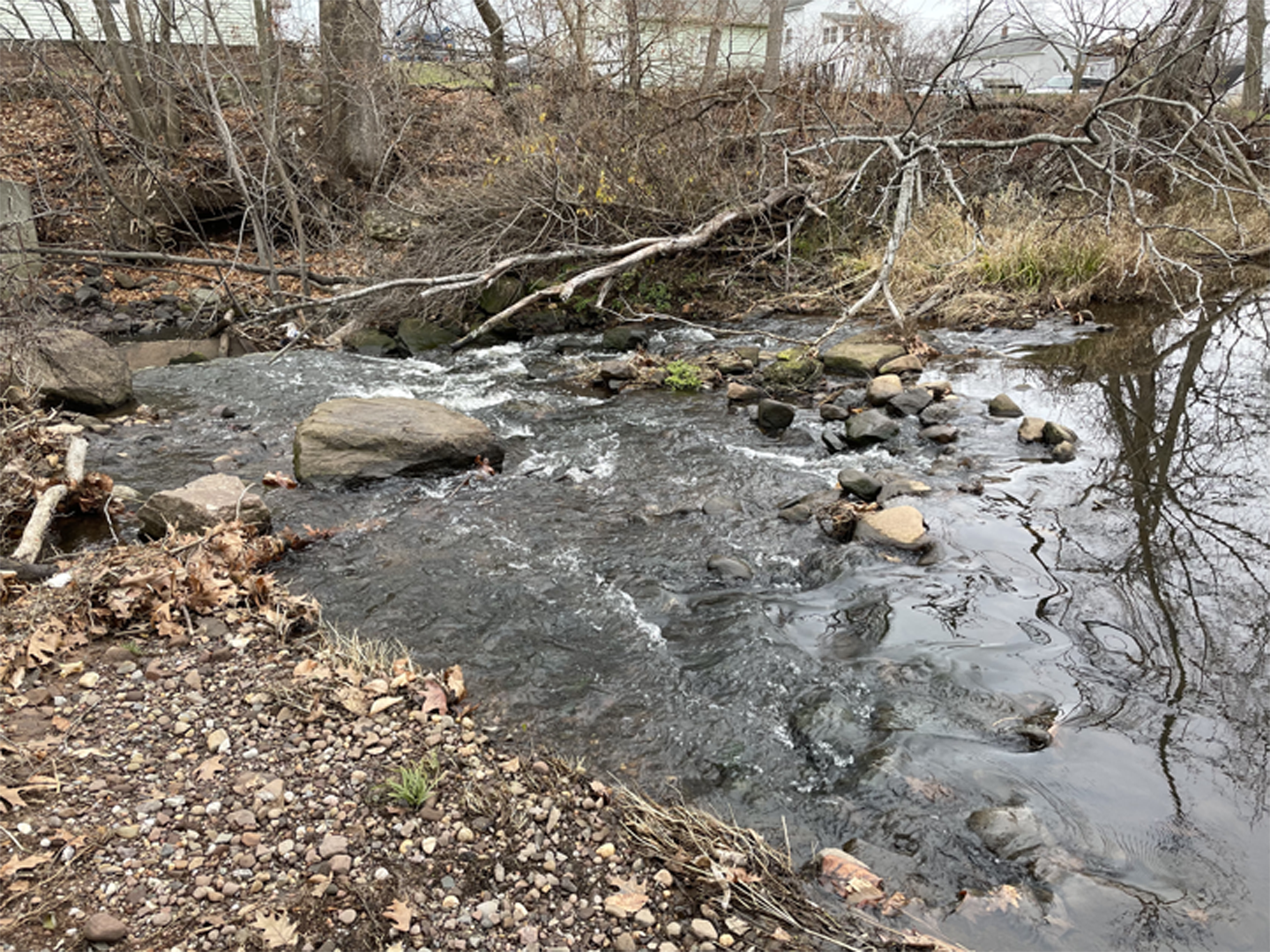
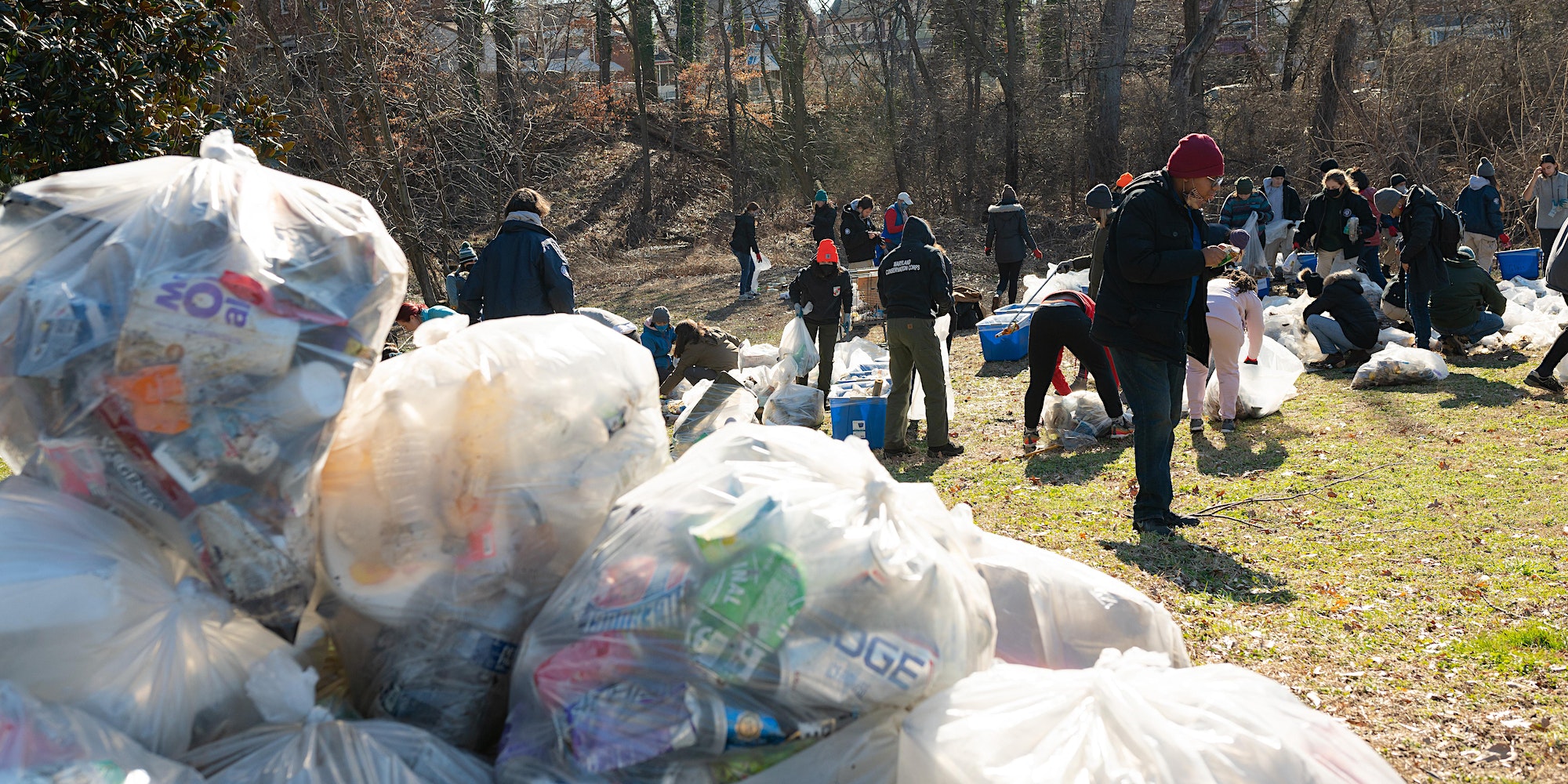 Can you help with a mid-winter cleanup event? We will be ready for action between Jan. 28 and Mar. 31 on a Saturday (2-4 p.m.) when the forecast is for a temperature above 30 degrees with no snow on the ground. Poison ivy is less of a danger in winter because it has no leaves and we will be wearing gloves. Wind-blown litter will be easy to spot with no leaves on the undergrowth. Our first location is the
Can you help with a mid-winter cleanup event? We will be ready for action between Jan. 28 and Mar. 31 on a Saturday (2-4 p.m.) when the forecast is for a temperature above 30 degrees with no snow on the ground. Poison ivy is less of a danger in winter because it has no leaves and we will be wearing gloves. Wind-blown litter will be easy to spot with no leaves on the undergrowth. Our first location is the 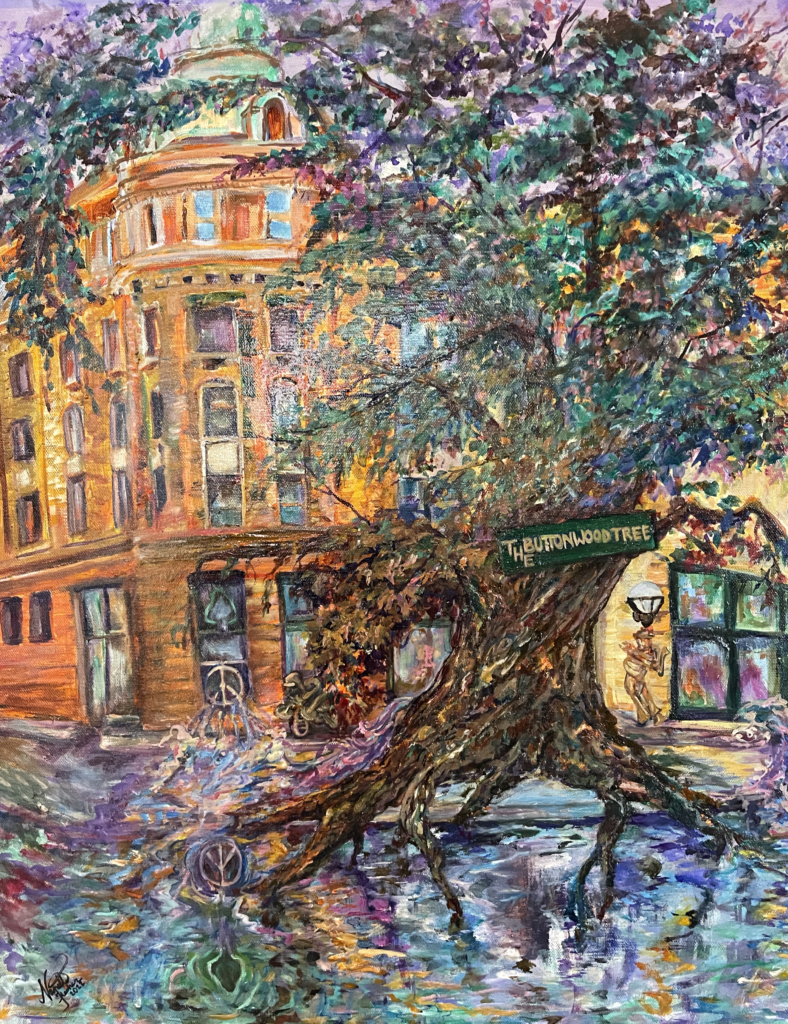
 After years of persistent advocacy, the Jonah Center’s vision of a 111-mile bike route in central Connecticut (
After years of persistent advocacy, the Jonah Center’s vision of a 111-mile bike route in central Connecticut (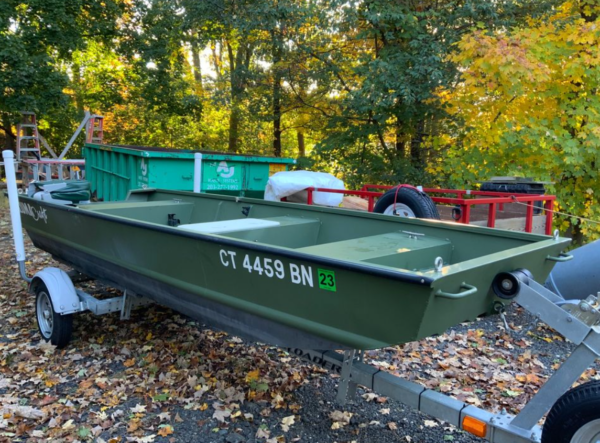
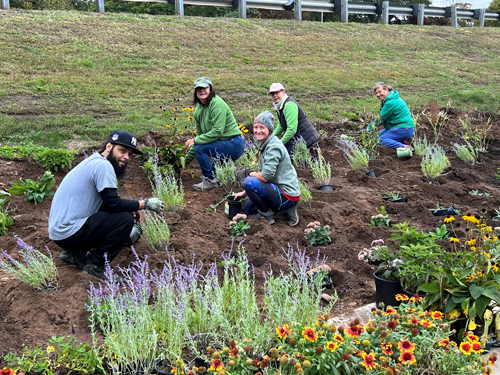 In mid-September, the Middletown Garden received a donation of over 7000 pollinator plants from Casertano Greenhouses and Farms in Cheshire. Plants included butterfly weed, goldenrod, salvia, blanket flower, sedum, and scabiosa.
In mid-September, the Middletown Garden received a donation of over 7000 pollinator plants from Casertano Greenhouses and Farms in Cheshire. Plants included butterfly weed, goldenrod, salvia, blanket flower, sedum, and scabiosa.  You may have noticed the electric scooters and bikes parked on sidewalks in downtown Middletown and neighborhoods near the Wesleyan campus. The program offers new ways for people to get around without driving.
You may have noticed the electric scooters and bikes parked on sidewalks in downtown Middletown and neighborhoods near the Wesleyan campus. The program offers new ways for people to get around without driving. 
